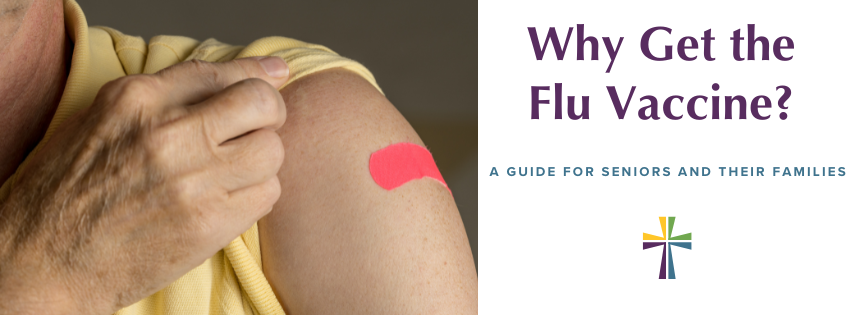Why get a flu shot?
Each year, millions of people suffer from seasonal influenza, commonly known as the flu. This respiratory illness, caused by viruses that infect the nose, throat, and sometimes the lungs, can be mild for some but very serious for others, especially older adults and those with chronic health conditions. Let’s explore why getting a flu vaccine is crucial for seniors and how it benefits their health.
Understanding the Seriousness of the Flu
Most people recover from the flu within a few days to two weeks. However, the flu can lead to serious health complications, particularly for older adults. These complications can range from mild issues like sinus or ear infections to severe conditions such as pneumonia.
Who is at Higher Risk?
Certain groups are more susceptible to flu complications, including:
- Adults aged 65 or older
- Individuals with chronic medical conditions such as asthma, diabetes, or chronic kidney disease
- People with heart disease or those who have had a stroke
- Residents of nursing homes or long-term care facilities
Additionally, pregnant women and young children (under five years old) are also at increased risk. For these groups, flu vaccination is especially important to mitigate the risks.
Why is the Flu More Dangerous for Older Adults?
The flu poses a greater danger to older adults due to two main reasons:
- Weakened Immune System: Aging naturally weakens the immune system, making it harder to fight off infections. For instance, while combating the flu, seniors might also contract secondary infections like pneumonia.
- Chronic Health Conditions: Older adults are more likely to have chronic health conditions such as diabetes or heart disease, which heighten their risk of severe flu complications.
The good news is that the flu vaccine significantly reduces the chances of getting the flu and mitigates the severity if infection occurs. It has been linked to lower rates of heart problems and fewer hospitalizations among individuals with chronic health issues.
How Does the Flu Spread?
The flu spreads mainly through airborne droplets when an infected person coughs, sneezes, or talks. It can spread from up to six feet away and, although less common, can also spread through contact with contaminated surfaces.
People can transmit the flu before they feel sick and up to a week after symptoms appear. To help prevent the spread of the flu, follow these practical steps:
- Wash your hands frequently
- Cover your mouth and nose when coughing or sneezing
- Avoid touching your face
- Stay home when feeling unwell
- Clean and disinfect frequently touched surfaces
Is it the Flu, a Cold, or COVID-19?
The flu, common cold, and COVID-19 are all respiratory illnesses but are caused by different viruses. They can present similar symptoms, making it challenging to distinguish between them without a healthcare provider’s input.
- Cold: Generally milder with symptoms like a runny nose and sore throat.
- Flu: Symptoms include fever, chills, dry cough, body aches, and headache.
- COVID-19: Similar to flu but can have additional symptoms like loss of taste or smell and tends to be more severe.
If you’re experiencing symptoms, consult with a healthcare provider to determine the cause and get appropriate care.
Recognizing a Fever in Older Adults
Older adults often have slightly lower normal body temperatures than younger adults, meaning their fever temperatures may also be lower. According to the CDC, a single temperature reading above 100°F (37.8°C), multiple readings above 99°F (37.2°C), or a rise greater than 2°F (1.1°C) above the person’s normal temperature can indicate an infection such as the flu.
Preventing the Flu
The most effective way to prevent the flu is through annual vaccination. Everyone aged six months and older should get a flu vaccine, which not only reduces the likelihood of contracting the flu but also decreases the risk of severe illness and hospitalization.
Additional Prevention Measures:
- Hand hygiene
- Cough etiquette
- Avoiding face touching
- Staying home when sick
- Disinfecting frequently touched surfaces
Who Should Get the Flu Vaccine and Which One to Choose?
Flu vaccination is particularly crucial in the fall and winter, with the flu season starting in October and peaking between December and February. It’s best to get vaccinated before the end of October, but later vaccinations still offer protection.
For seniors, higher-dose flu vaccines or adjuvanted vaccines (with added ingredients to boost immune response) are recommended. Consult your healthcare provider or pharmacist to determine the best option for you.
Where Can You Get the Flu Vaccine?
Flu vaccines are available at doctors’ offices, local health departments, grocery stores, drug stores, and pharmacies. Visit Vaccines.gov to find a convenient location near you.
Why Do You Need a Flu Vaccine Every Year?
Annual flu vaccination is necessary because flu viruses change, and vaccines are updated yearly to target the most prevalent strains. Additionally, the protective effects of the vaccine decrease over time, particularly in older adults.
What Are the Side Effects of Flu Vaccines?
Flu vaccines are safe and cannot cause the flu. Most people experience no issues, but possible minor side effects include soreness, redness, or swelling at the injection site, and sometimes headache, fever, nausea, or muscle aches. These effects are generally mild and short-lived.
Those with allergies should discuss options with their healthcare provider. Even individuals with mild egg allergies can safely receive most flu vaccines, and egg-free options are available.
How Much Does Getting a Flu Vaccine Cost?
Most people can receive a flu vaccine at little to no cost, as Medicare and most private insurance plans cover it. Check with your insurance provider for specific details. If uninsured, contact your local or state health department for assistance.
What To Do If You Get the Flu?
If you contract the flu, consult a healthcare provider promptly. Given the similarity between flu and COVID-19 symptoms, testing may be necessary. Antiviral medications, if taken within 48 hours of symptom onset, can reduce the severity and duration of the flu.
While recovering, rest, stay hydrated, and consider over-the-counter medications to alleviate symptoms. Avoid smoking, as it exacerbates respiratory issues.
Conclusion
Getting a flu vaccine is essential for protecting senior health and preventing serious complications. It’s a simple step that can make a significant difference in your well-being and quality of life. Stay informed, take preventive measures, and ensure you’re vaccinated each year to enjoy a healthier, happier life.
For personalized advice on flu vaccinations, visit Vaccines.gov or consult with your healthcare provider today.


